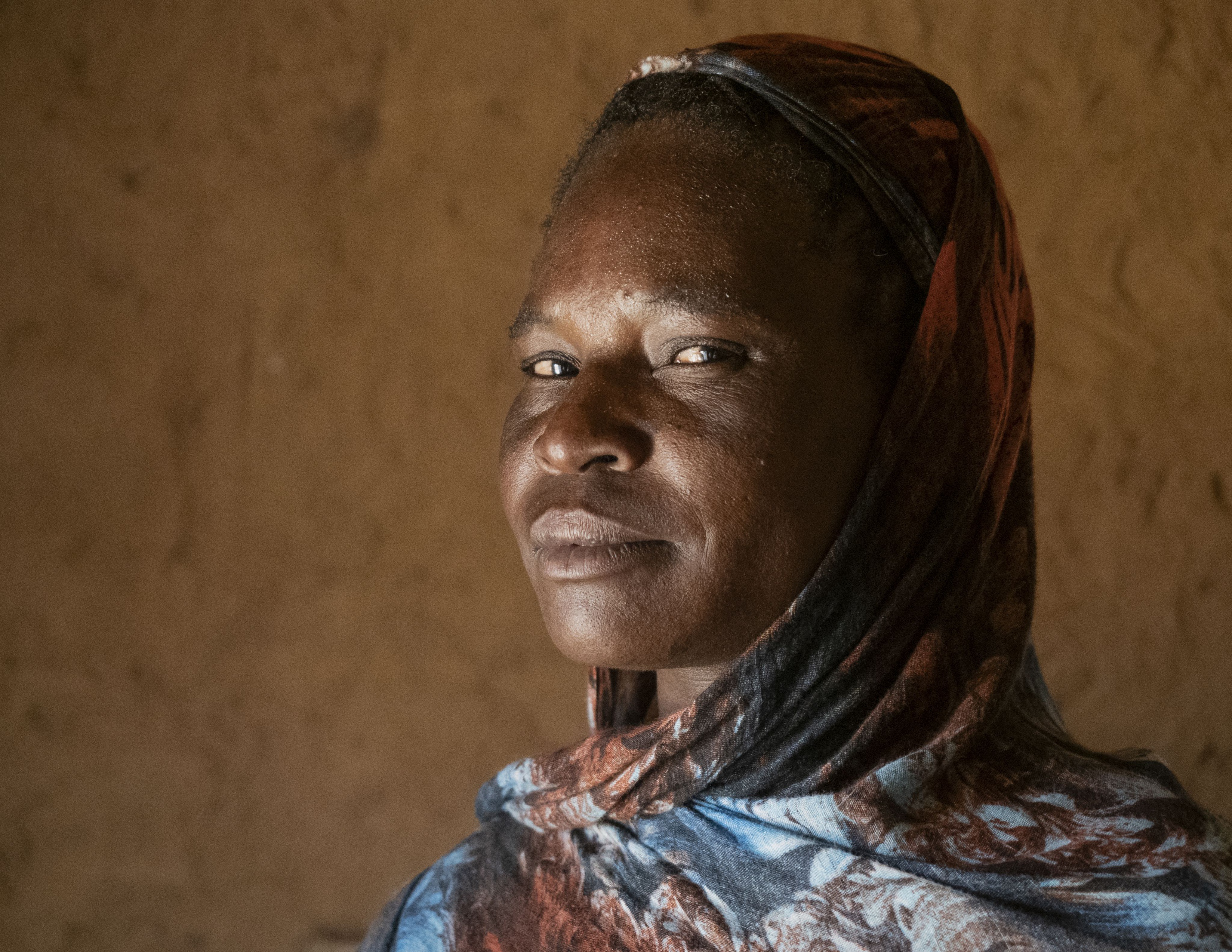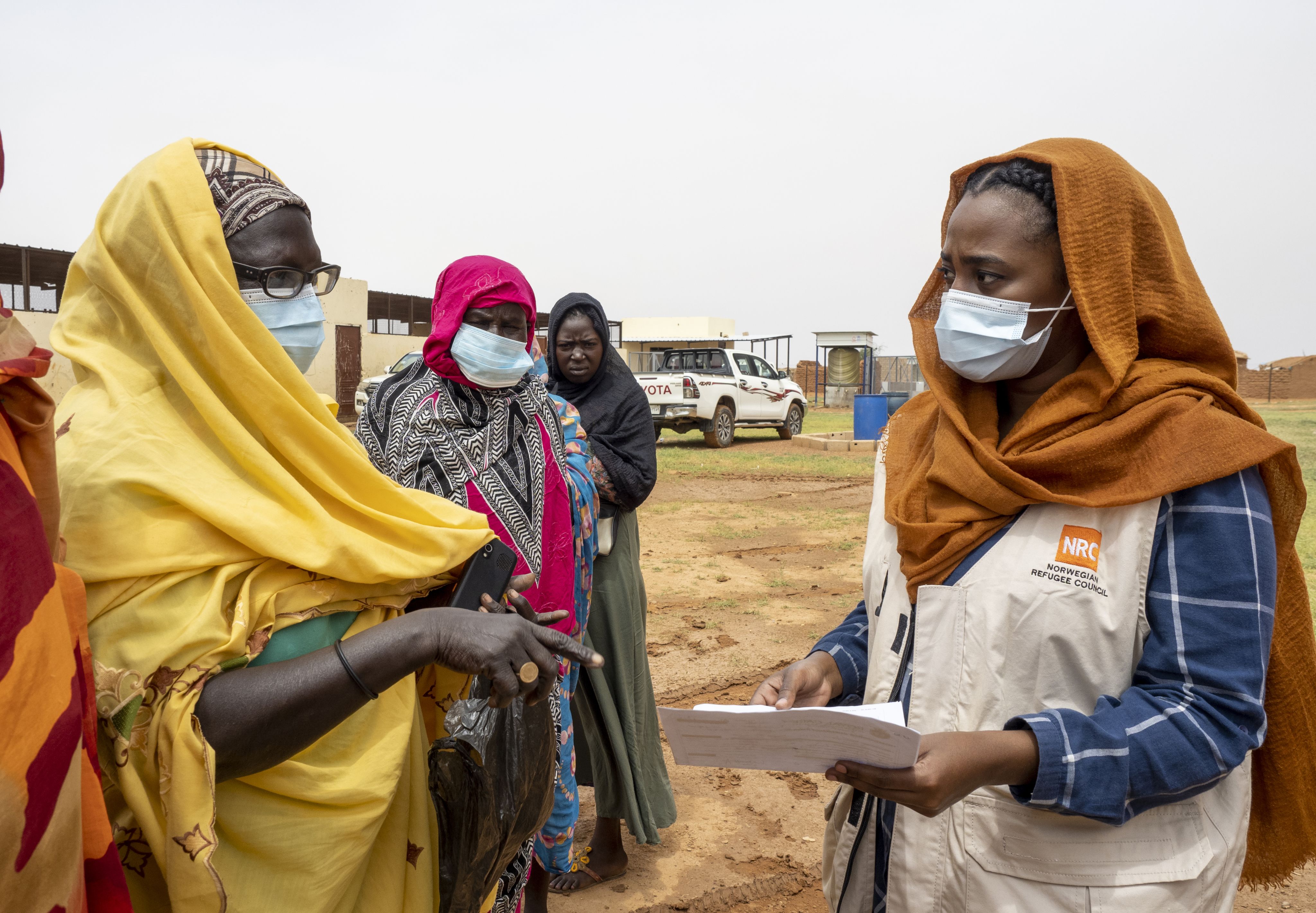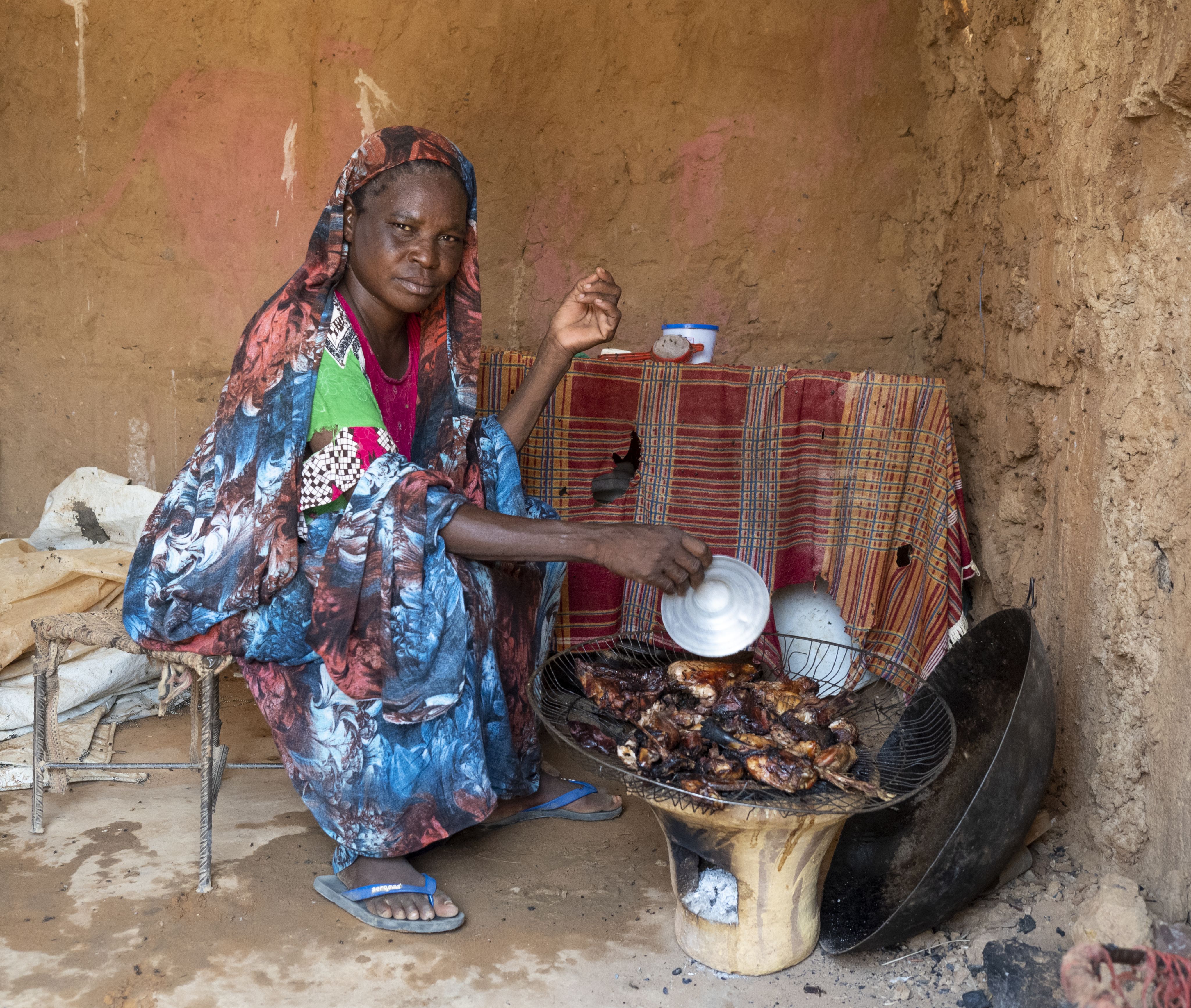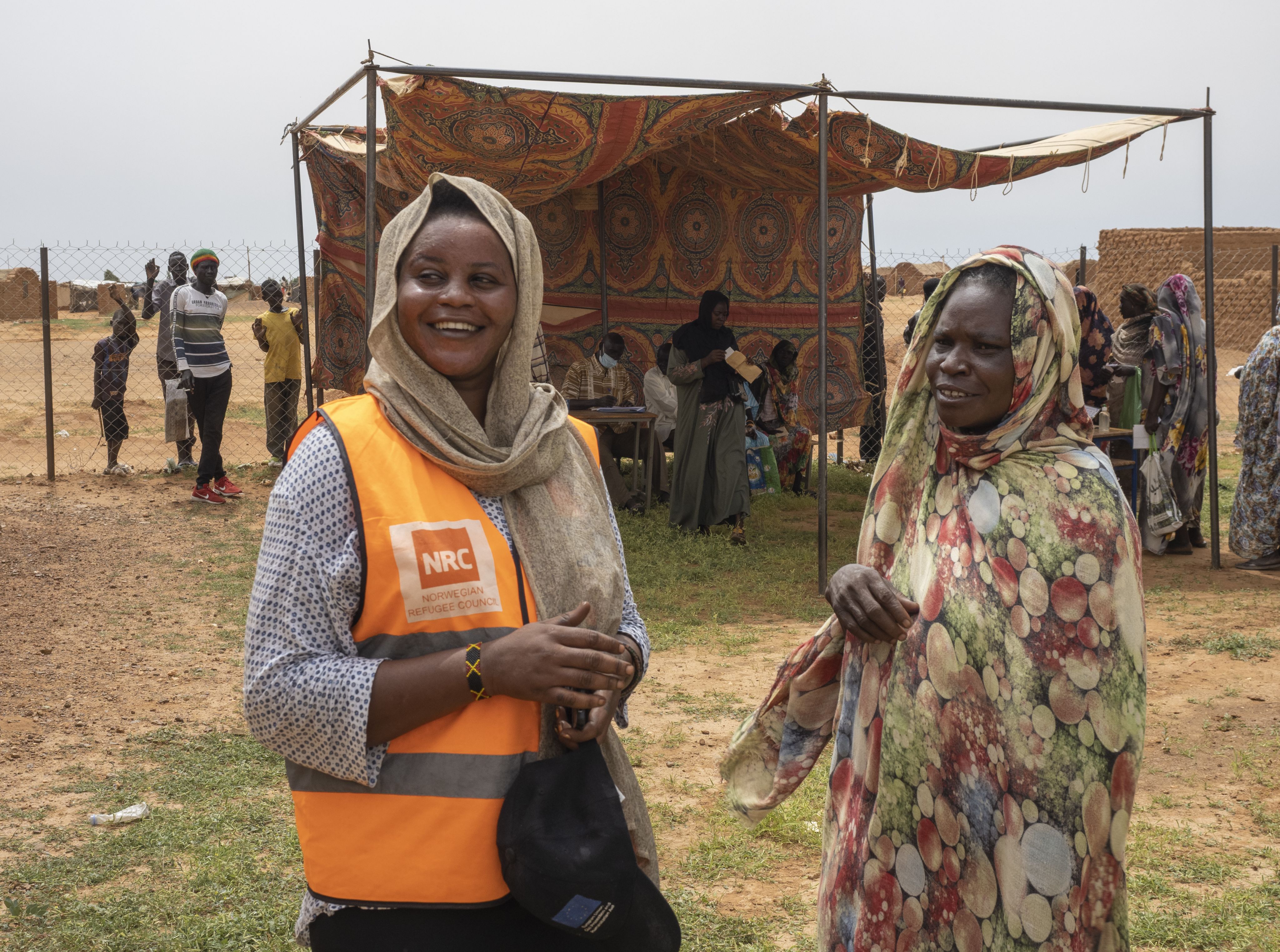Sudan
Twelve mouths to feed

What is a mother to do when her children are hungry for a proper meal, and the day’s income from selling tea on the streets doesn’t put enough food on the table?
Sedoni, a South Sudanese single parent and caretaker of 12 children, lives on the outskirts of Khartoum, the capital of Sudan. Here in this hot, secluded landscape, Sedoni and her family face constant food shortages, and a debilitating lack of water and electricity.
Sedoni is part of a vulnerable group living on the fringes of Sudanese society. While 2021 marked a decade since South Sudan gained independence, 155,000 South Sudanese are still stranded as refugees in Sudan’s Khartoum State because of ongoing violence. The conditions are poor, and aid is irregular. Economic and legal hurdles prevent many refugees from finding work, meaning they often go hungry.
“How do you expect my life to be? My life is damaged and full of hardships. I don’t sleep at night. My children did not have breakfast this morning. I’m talking to you, but my mind cannot stop thinking.”
“I don’t sleep at night”
We sit down with Sedoni in her home. The mud hut contains a few modest beds, a basket of clothes, a water cooler and a small box containing dishes. Children stream in and out as we talk, and the smallest two-year-old girl nuzzles against Sedoni’s leg or sits in her lap.
We ask Sedoni about her daily life. She responds:
“How do you expect my life to be? My life is damaged and full of hardships. I don’t sleep at night. My children did not have breakfast this morning. I’m talking to you, but my mind cannot stop thinking.”
The Norwegian Refugee Council (NRC) works to support refugees and displaced people in over 30 countries around the world, including Sudan. Support our work today.

Sedoni tells us she lives for the children. Every day, she wakes up to a struggle to provide food and necessities for her family. Cash from the Norwegian Refugee Council (NRC), she says, goes directly to this:
“When we have cash, I only get things for my children like soap, flour, and milk. That’s it, the money finishes like this. There’s nothing else I need to do with the money other than spend it on my children.”

NRC staff talk with members of the community during the cash distribution.
NRC staff talk with members of the community during the cash distribution.
Restoring choice with cash

With support from the European Union, NRC is providing people like Sedoni with cash to feed their families. Malnutrition is a serious risk for South Sudanese refugees living in Khartoum. To help overcome this, NRC holds sessions with the community to raise awareness on the importance of choosing a diverse selection of healthy, nourishing foods.
The cash-for-food programme gives priority to households most at risk of malnutrition. These are households that include pregnant or breastfeeding women, people caring for more than three children under the age of five, and people who have a chronic illness. Each household member received a monthly payment of about 5,500 Sudanese pounds (equal to around 12 USD) per month for four months.
The programme helps soothe anxieties over whether there will be enough to eat.
Sedoni’s daughter, Manuela, 10, explains:
“When my mom tells me she doesn’t have money, I think of food. When she has money, I don’t need to worry about food.”
Living in the open areas
Sedoni and her family live in what's known as an “open area” in Sudan’s Khartoum State. She came to the open area in the locality of Umbada in 2013 with her husband, her sister, and her children.
Soon, life got really hard. After a few years in Umbada, Sedoni’s husband left to seek a better life in South Sudan. Her sister, who had supported with childcare, passed away, and left behind a 22-year-old daughter, Jacqlin, who has two children herself.
The open area in Umbada where Sedoni lives with her family.
The open area in Umbada where Sedoni lives with her family.
Sedoni found herself with overwhelming responsibility.
Surrounded by hungry children, she and her niece Jacqlin formed a partnership to navigate life as single mothers in a big family with 12 children.
During the week, Sedoni takes care of the children while Jacqlin travels to the town’s market to work as a tea seller and generate income for the family. The modest sum Jacqlin collects is supplemented by cash distributions from NRC and the additional income Jacqlin makes as an incentive worker for NRC.
In this role, she helps the NRC Sudan team set up cash distribution points and organises the distribution process. She also helps to ensure that older people and vulnerable members of the community can easily navigate the process.

Jacqlin (left) and Sedoni (right) at the cash distribution site.
Jacqlin (left) and Sedoni (right) at the cash distribution site.
A brief history of the open areas
- Open areas are displacement sites around Khartoum State, Sudan, where South Sudanese people live as refugees in poor conditions with irregular aid.
- Open areas were once temporary gathering points for South Sudanese people who were voluntarily repatriating to South Sudan when the country gained independence in 2011.
- In 2011, South Sudanese people living in Sudan lost their citizenship – even those who wanted to stay.
- Open areas soon became a permanent home for South Sudanese after civil war erupted in South Sudan and made repatriation too dangerous.
- Today, the open areas are home to 155,000 refugees who live without full rights, in legal and financial limbo.
Economic struggles
People living in open areas face serious economic hardships and a difficult labour market. The work that Jacqlin does selling tea in Khartoum, a typical job for refugee women living in the open areas, is low-paid and risky. Police regularly seize the tea equipment if the women do not hold a special, and costly, licence.
Khartoum, the capital of Sudan, is around three hours away on public transport from Umbada, where the family lives. Sedoni’s son, Bernardo, 20, does construction work in Khartoum as part of the “shadow” labour force. Caught in legal limbo, refugees like Jacqlin and Bernardo usually do not have work permits, forcing them to join the “shadow economy” to make money.
Hope for future
Despite the struggles of everyday life, Sedoni has hope for the next generation. Initiatives like the cash distributions provide the foundation for getting through each day. Cash helps her buy nutritious food that keeps her children healthy and able to focus on school, which is her top priority.
“I hope my children will be healthy and educated. I want nothing more than for them to build their future,” says Sedoni.
Read more about our work in Sudan
Read more about cash-based interventions
This work would not have been possible without EU humanitarian funding.


